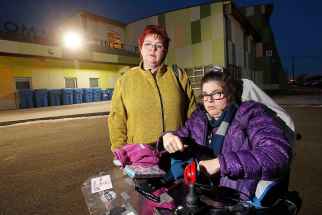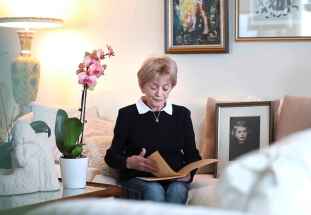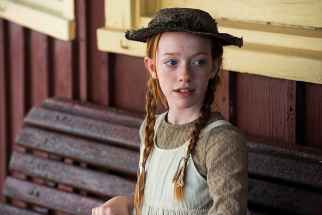The diary of Susan Garfield Winnipeg Holocaust survivor began recording her thoughts and fears as a soon-to-be orphaned 10-year-old Jewish girl in Budapest
Read this article for free:
or
Already have an account? Log in here »
To continue reading, please subscribe:
Monthly Digital Subscription
$0 for the first 4 weeks*
- Enjoy unlimited reading on winnipegfreepress.com
- Read the E-Edition, our digital replica newspaper
- Access News Break, our award-winning app
- Play interactive puzzles
*No charge for 4 weeks then price increases to the regular rate of $19.00 plus GST every four weeks. Offer available to new and qualified returning subscribers only. Cancel any time.
Monthly Digital Subscription
$4.75/week*
- Enjoy unlimited reading on winnipegfreepress.com
- Read the E-Edition, our digital replica newspaper
- Access News Break, our award-winning app
- Play interactive puzzles
*Billed as $19 plus GST every four weeks. Cancel any time.
To continue reading, please subscribe:
Add Free Press access to your Brandon Sun subscription for only an additional
$1 for the first 4 weeks*
*Your next subscription payment will increase by $1.00 and you will be charged $16.99 plus GST for four weeks. After four weeks, your payment will increase to $23.99 plus GST every four weeks.
Read unlimited articles for free today:
or
Already have an account? Log in here »
Hey there, time traveller!
This article was published 02/12/2019 (2205 days ago), so information in it may no longer be current.
“The reason I am writing this diary is that, many years from now when my smooth face will be a map of wrinkles, I may show it to my children and grandchildren. I want to give account of the war-filled years, the strife, the persecution and many more heart-rending things.”
That’s how Winnipegger Susan Garfield’s wartime diary begins.
Garfield, 86, was nearly 11 years old when she started writing about her experiences as young Jewish girl in Budapest in June 1944.
Two years before she began the diary, when she was nine, her father was taken away to a slave labour camp in 1942. She never saw him again.
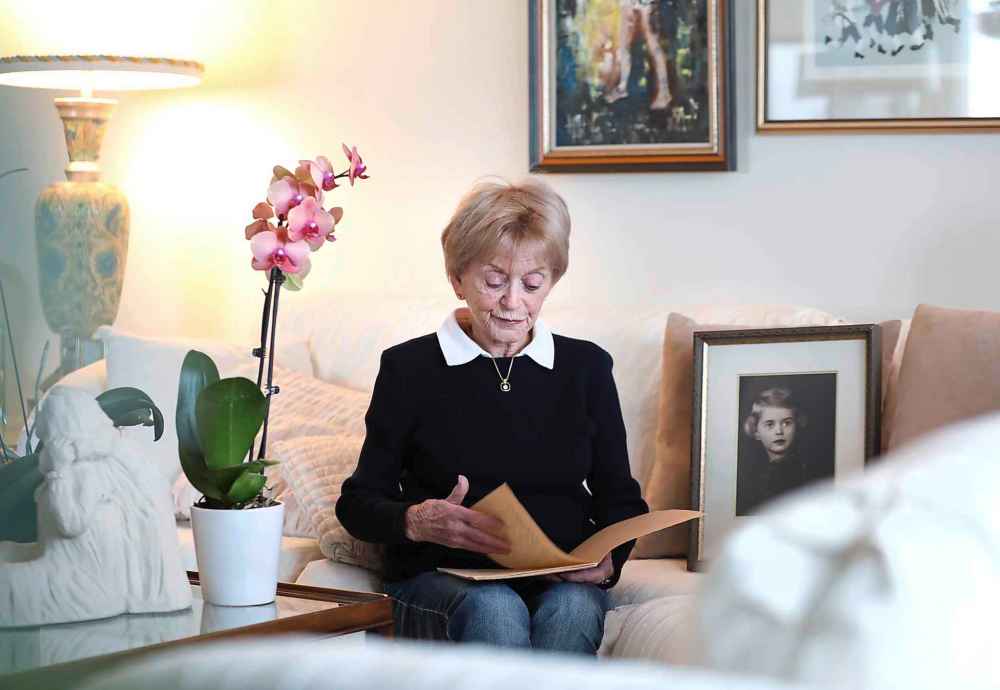
Garfield lived with her mother until fall 1944, when her mother was shipped to a concentration camp in Austria. She survived the camp but died of typhus on the way home.
Orphaned, Garfield left her home — and her diary — behind and went into hiding. Using false documents, she went from place-to-place to avoid being captured.
Caught once, she was sent to the Jewish ghetto. But she escaped, continuing to live on the run until the city was liberated by the Russians in early 1945.
Looking back, Garfield said simply: “I somehow managed.”
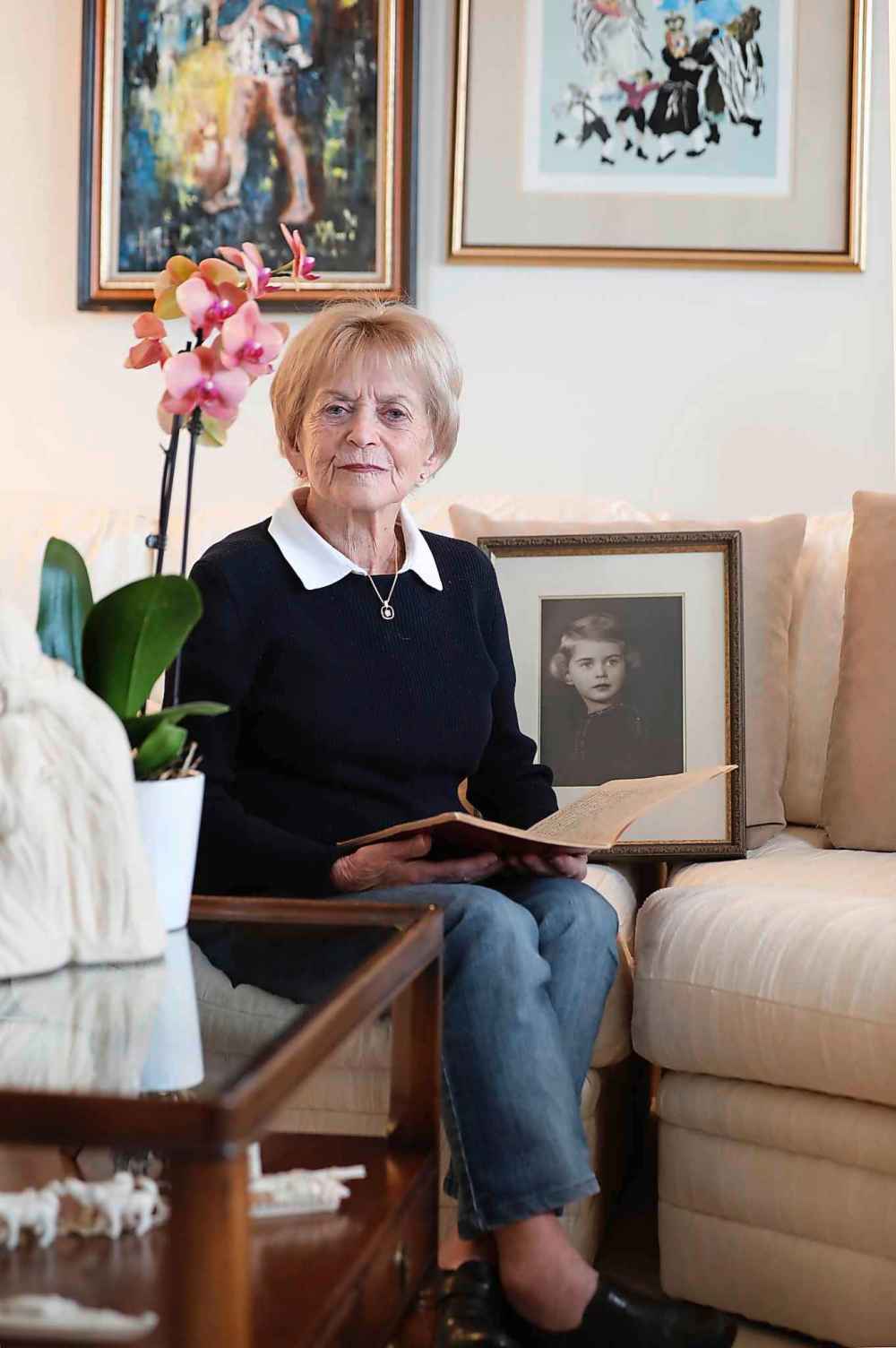
That included surviving the seven-week siege of Budapest.
“It was a terrible time,” she said of the shelling and bombing she experienced during the fighting between the Germans and Russians. An estimated 38,000 civilians were killed. “I was surrounded by death and horror.”
After the war, she was miraculously reunited with her diary. In 1947, she began writing in it again, catching up on her life during the war and her decision to immigrate to Canada.
Garfield’s diary, titled Too Many Goodbyes, will be launched at the Berney Theatre in the Asper Jewish Community Campus at 2 p.m. Sunday.
The event will feature a conversation about loss, family and finding a new home, with Garfield and Adara Goldberg, director of the Kean University Holocaust Resource Centre in New Jersey.
For Garfield, a mother and grandmother, the publication of the diary is a way to “counteract those who say it didn’t happen. I am here to say it did. I saw it.”
She also wants to “speak up for those who died, and for those who are still suffering because of their experiences during the war.”
This includes a childhood friend from when she was growing up in Budapest — “one of the most beautiful, smartest and nicest persons” — who survived the war but lives with severe depression because of her experiences.
“I think about her a lot,” Garfield said. “Whatever happened back then affects your whole life.”
“Whatever happened back then affects your whole life.” – Susan Garfield
For Belle Jarniewski, executive director of the Jewish Heritage Centre of Western Canada, Garfield’s diary — the original of which is at the centre — is “an extraordinary document. It contains the reflections of young girl writing in the moment, along with reflections later on about her earlier life.”
It’s also important because Holocaust survivors are passing away, leaving fewer people alive to share these stories. “The window is getting smaller,” she said.
Too Many Goodbyes is a partnership between the Jewish Federation of Winnipeg, the Heritage Centre and the Azrieli Foundation’s Holocaust Survivor Memoirs Program — which will make free copies of the book available to all schools in Manitoba.
The event is free, but registration is required by calling 204-478-8590 or registering online.
faith@freepress.mb.ca
The Free Press is committed to covering faith in Manitoba. If you appreciate that coverage, help us do more! Your contribution of $10, $25 or more will allow us to deepen our reporting about faith in the province. Thanks! BECOME A FAITH JOURNALISM SUPPORTER

John Longhurst has been writing for Winnipeg's faith pages since 2003. He also writes for Religion News Service in the U.S., and blogs about the media, marketing and communications at Making the News.
Our newsroom depends on a growing audience of readers to power our journalism. If you are not a paid reader, please consider becoming a subscriber.
Our newsroom depends on its audience of readers to power our journalism. Thank you for your support.
The Free Press acknowledges the financial support it receives from members of the city’s faith community, which makes our coverage of religion possible.



